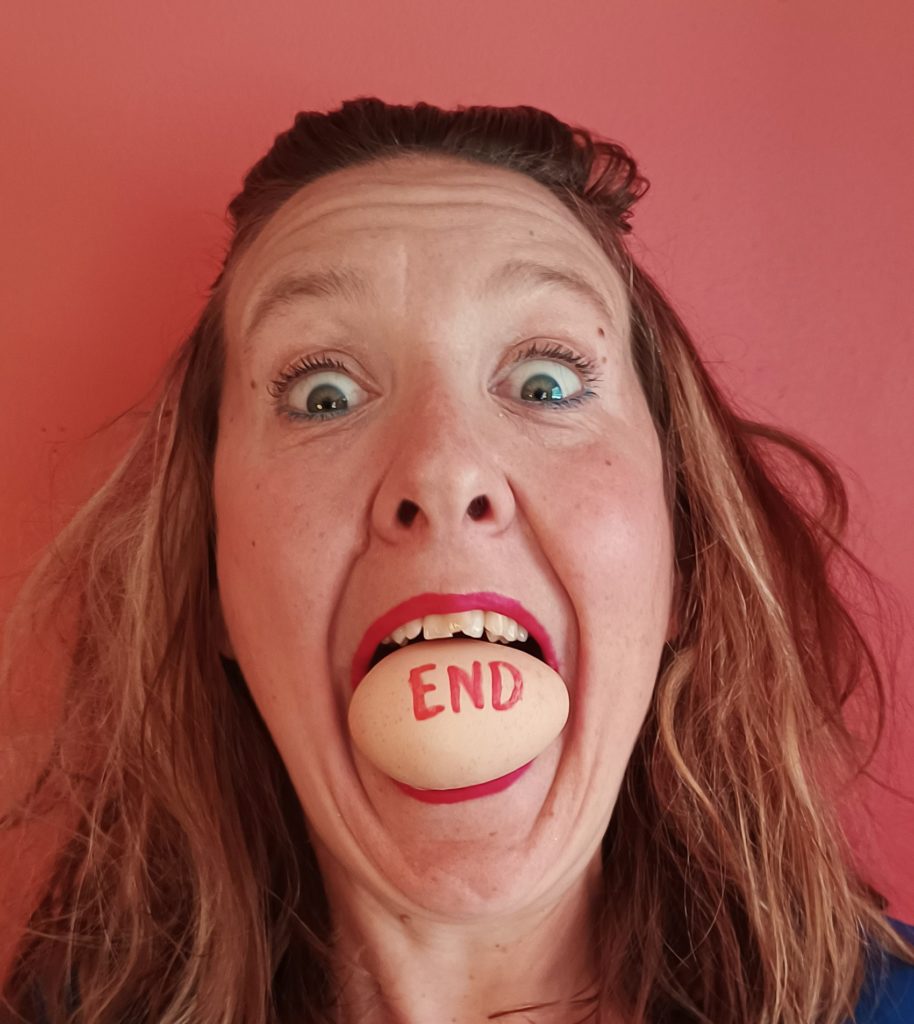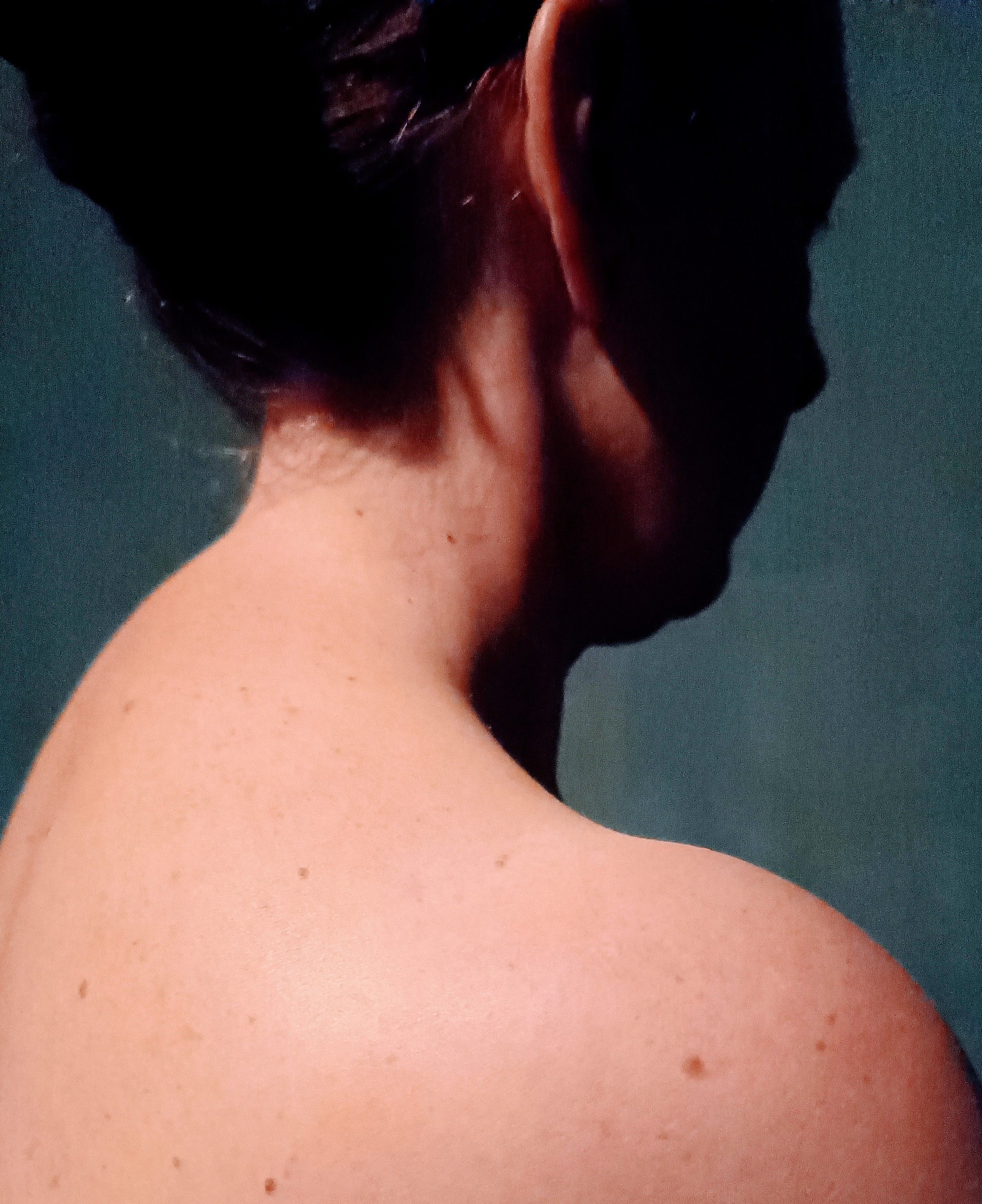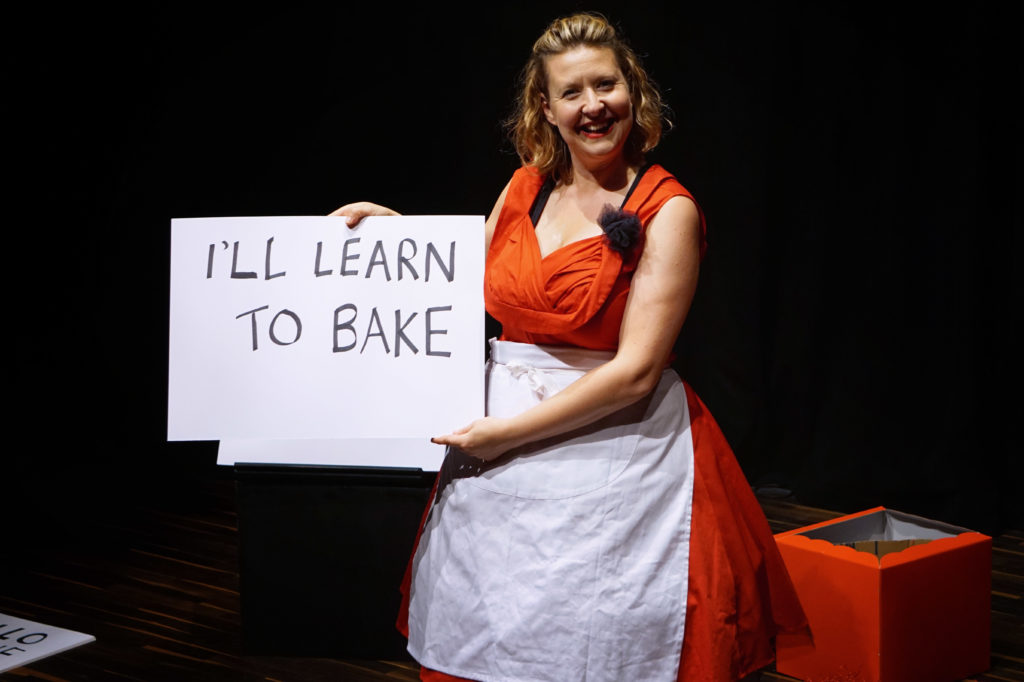
5th September 2022
In 2018 I made an autobiographical one woman show called ‘How to be amazingly happy!’. It looked at identity and reinvention through the lens of not having children. It’s personal, intimate and increasingly has enabled me to platform issues around childlessness.
But when you have a successful show how do you know when to stop doing it?
As a piece of theatre, ‘How to be amazingly happy!’ has done well – a successful run at the Edinburgh Fringe, tour dates all around the country and still in demand. It’s been a great ‘bread and butter’ show, flexible to tour, manageable to self-produce and, when making new work has been frustrated by the pandemic, it’s been a valuable way for me to stay feeling like a performer and connecting with audiences. It makes a lot of sense to keep projects like this ‘in repertoire’ – but for how long? There are particular things to consider when the work is auto-biographical or trauma informed.
First, the material dates. Not necessarily in its relevance to the audience but to the experience of the artist. It’s a true life drama but only at that moment in time, and life moves on. Relationships change and loved ones come and go. Performance skills mean things can be compellingly recreated and shows can be re-written but there’s a heartfelt balance in maintaining the integrity of the narrative alongside being oneself on stage when big things you’re talking about have changed. I experimented with replacing a monologue about a relationship, included to represent new beginnings when it actually ended very badly, but it just wasn’t as good. I spent a whole day of rehearsal angsting whether to change the word ‘is’ to ‘was’ in a sentence about my mum after she died. Narratively it would be an imperceptible change but the experience of performing it very different.
There are other ethical considerations that come up as auto-biographical shows age. In a piece that is largely direct address, talking to the audience as ‘myself’, about visceral life moments, deliberately invites connection. But the audience experienc of live performance is in real time and in post show talks and surrounding conversations I don’t want to disrupt that relationship, or burst the world of the play, by no longer being the me they just met. Of course everything in the show is still true but in a production which attempts to bring honesty, to subjects often not talked about, I’m concerned with maintaining my authenticity and honouring shared vulnerabilty. And what if I’ve changed my mind about something?
This brings me to my next point which is about the paradox of working from difficult personal experience. It’s so powerful to bring a story into the light to say ‘I stand for this’ or ‘This has happened to me, so maybe to you, or people you know’. So is the challenge, healing and joy of art. But how is the artist’s recovery from a trauma affected by both their sharing of it and the process of continually re-inhabiting it on demand? How do they get to outgrow it?
My own experience was that it was fearfully hard at first to disclose something I’d kept private, then it was unintentionally and wonderfully cathartic. As with most trauma, shame is an underlying problem and being increasingly open has enabled me to assimilate my experience in ways I never imagined, as well as to meet and talk to amazing people. Now as time goes on it feels important that new things can happen and old experiences can be redefined in a bigger context. There are other things to say, do and be known for. With auto-biographical work though you are permanently linked to the material. You can’t just take your token back to the cloakroom and get your coat of anonymity back. Labels about issues and identity can’t only be worn in front of the people you feel safe with – they’ll be marketed to everyone and this complicity with the content of the show is reinforced with every repeat performance.
I was really taken by an exchange with artist @nathanieljhall, when he finished performing the auto-biographical show ‘First Time’ which tells his story of contracting HIV. He said that right from the beginning, because it was a trauma informed work, he only ever planned to perform two tours. When COVID affected that boundary he made a new one of a set number of shows – so he always had an end point in sight. That struck me as a very sound plan. I never set a cap but I remembered that my ambition for ‘How to be amazingly happy!’ was to do 50 performances. Adding up the stats when writing this article I was delighted to find that my next show will be my 50th!
So, with all this in mind I’ve decided that, to the best of my knowledge, the performance of ‘How to be amazingly happy!’ this Saturday at @StoryhouseLive in Chester will be my last one. I can hang up my costume in the knowledge that I’ve done what I set out to do and done my bit in creative service to issues that have come to matter so much to me and many others. It feels fitting that it will be part of a whole day of events exploring the experience of people who don’t have children due to choice, or not by choice, or both.
It also feels good to pass the baton. Stories will always need re-telling and I’ve recently met Deborah Pakkar-Hull (@otherhoodarts) who’s researching a new play ‘Otherhood’ about people’s experience of not being a parent.
I’m so grateful to ‘How to be amazingly happy!’ for all it’s brought me personally and professionally. In the same way as we are all a product of our experiences, I have no doubt it will continue to inform me as a person and as an artist. Perhaps the material of the live performance will evolve into another format, maybe there will be a follow up show. Time will tell, but with autobiographical work, whatever I make in future will inevitably be a story of what happened next. This is definitely ‘An End’ rather than ‘The End’.
To everyone who has been a part of, supported, or shared the story – sincerely thank you x
***************

